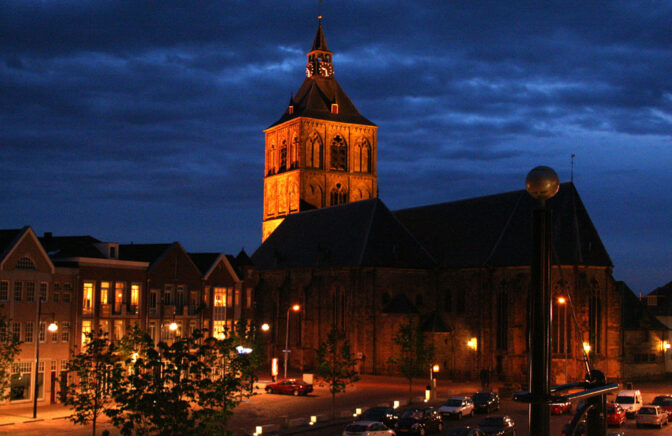A feestdag (literally: feast day) is a holiday.
Traditionally, feestdagen played an important role in our ancestors’ lives, and not just the ones many of us know today like Christmas and Easter.
Roman Catholic churches had patron saints. The holidays associated with these saints often remained important days for the town, even after the reformation in protestant areas. It might be the day of the annual fair, or when guilds held their elections.
My home town of Oldenzaal has a basilica dedicated to St. Plechelm, whose holiday is 15 July. The church was founded in 756 AD by Plechelm, an Anglo-Saxon missionary trying to convert people to Christianity. The original wooden structure was replaced by a stone church in 954, which was extended over time to become the current basilica. In medieval times, a procession was held on St. Plechelm’s holiday, and special alms were given to the poor. When the church celebrated its 1050th anniversary of the stone building in 2004, a procession was held like in the medieval period.

Plechelm basilica in Oldenzaal. Photo by author.

